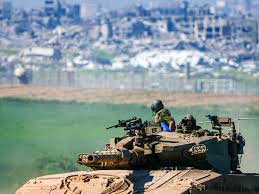Kim Jong Un of North Korea could go to Russia to see Putin: What is at risk?
According to a U.S. official, North Korean leader Kim Jong Un may visit Russia for a meeting with President Vladimir Putin. This trip would highlight the two leaders’ growing collaboration while they are involved in separate conflicts with the United States.
Additionally, according to U.S. sources, Russia is attempting to purchase ammunition from North Korea to replenish stocks depleted by its conflict in Ukraine. Experts predicted that North Korea will ask for supplies of food, electricity, and advanced weaponry technology in exchange.
Kim’s first summit with a foreign leader since North Korea closed its borders in January 2020 would be a meeting with Putin. They first spoke in April 2019, two months after Kim’s delicate nuclear negotiations with then-President Donald Trump ended in failure.
According to U.S. sources, Russian Defense Minister Sergei Shoigu visited Pyongyang in July and requested that Kim supply additional ammo to his country. Shoigu said that Moscow and Pyongyang were thinking about conducting their first-ever military drills.
Uncertainty surrounds the potential scope of military cooperation between Kim and Putin, but any indication of thawing tensions would alarm adversaries like the United States and South Korea. While North Korea continues a record-breaking pace of missile testing in protest of U.S. plans to strengthen its military alliances with South Korea and Japan, Russia aims to thwart a Ukrainian counteroffensive and prolong the conflict.
Here are some implications of Kim traveling to Russia:
WHAT EXPECTS NORTH KOREA TO DO FOR RUSSIA?
Since last year, American authorities have had suspicions that North Korea is giving Russia artillery shells, rockets, and other ammunition, many of which are probably replicas of weapons from the Soviet period.
“Russia urgently requires (war supplies).” If so, how could a major nation at war send its defense minister to a tiny nation like North Korea? Kim Taewoo, a former leader of the Korea Institute for National Unification in Seoul, stated. Since the collapse of the Soviet Union in 1991, he said that Shoigu was the first Russian military minister to visit North Korea.
Purchasing weapons from North Korea would be against U.N. resolutions that prohibit any arms commerce with the isolated nation and are backed by Russia. Russia has sought weaponry from other sanctioned nations like North Korea and Iran, but now that it is subject to international sanctions and export restrictions because of its conflict in Ukraine.
Du Hyeogn Cha, an expert at Seoul’s Asan Institute for Policy Studies, questioned whether North Korea could quickly deliver considerable volumes of munitions to Russia due to the two nations’ confined land connection, which can only accommodate a small quantity of train traffic.
WHAT EXPECTS KIM IN RESPONSE?
Experts predicted that Kim’s goals would be military technology, status, and assistance supplies.
“It would be a ‘win-win’ deal for both, as Putin is cornered over his exhausted weapons inventory while Kim faces pressure from the South Korea-U.S.-Japan trilateral cooperation,” said Nam Sung-wook, a former director of the Institute for National Security Strategy, an organization run by South Korea’s spy agency. “Now, their needs are perfectly matched.”
Due to significant economic problems caused by border restrictions during the pandemic, Kim is likely to look for supplies of food and energy to make up for shortages.
Kim will probably also highlight improving ties with Moscow as evidence that his nation is emerging from years of exile. Face-to-face encounters between North Korean leaders and heads of state have long been prized for their symbolic significance on the global stage and their potential for internal propaganda.
According to Hong Min, an expert at Seoul’s Korea Institute for National Unification, Kim is likely also looking for Russian technology to bolster his goals to develop cutting-edge weaponry, including strong long-range missiles, hypersonic weapons, nuclear-powered submarines, and surveillance satellites.
According to Cha, it’s uncertain if Russia would be prepared to provide North Korea access to cutting-edge nuclear and ICBM technology. Even from critical allies like China, Russia has always kept its most crucial weapon technology well guarded, he said.
WHAT RELATIONSHIP COULD THE TWO COUNTRIES ACHIEVE?
Shoigu told reporters on Monday that North Korea and Russia were considering holding a joint military drill. Shoigu seemed to have suggested a trilateral training exercise with China, according to South Korea’s intelligence service, which earlier informed legislators.
In any case, it would be the North’s first international military exercises since the conclusion of the 1950–1953 Korean War. In keeping with its stated “juche,” or “self-reliance,” credo, the nation has shunned training with a foreign force.
Expanding South Korea-U.S.-Japan security cooperation, according to former institute head Kim Taewoo, may persuade Kim Jong Un to break the taboo and conduct exercises with Russia and China for the first time.
North Korea won’t likely accept the offer, according to Nam, who is now a professor at Korea University, since it may make the country even more reliant on China and Russia.
It’s too soon to determine what Kim’s diplomacy could achieve beyond making a show of defiance against the United States, according to Park Won Gon, a professor at Seoul’s Ewha Womans University.
In any event, North Korea and Russia must demonstrate that they are collaborating and expanding their collaboration, according to Park. It is obvious that there are areas of actual collaboration as well as certain symbolic elements they wish to display to the United States.







